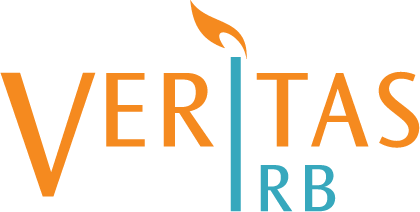It is a regulatory duty of IRB/REBs to request Investigator qualification information
What information is required by the IRB/REB?
- Current medical, dental, or professional license
- List of any board certifications
- Number of years the PI has been conducting research studies, and number of years at the current research site
Any certifications/degrees in human research participant protection, such as:
- ACRP (CTI, CCRC, CCRA)
- APPI (CPI)
- DIA (CCI)
- SOCRA (CCRP)
- Graduate/undergraduate researcher studies/degree
- CITI Program: Course in the Protection of Human Research Subjects
- FDA Information Sheets, and the Belmont Report (US)
- ICH-GCP guidelines
- NIH Human Participant Protections Education
- OHRP training modules
- Tri-Council Policy Statement (TCPS2) (Canada)
This information set permits Veritas IRB to ensure that each approved PI/QI is fully qualified to conduct the specific research project, while respecting both good clinical practice and the protection of research participants’ rights and well-being.


